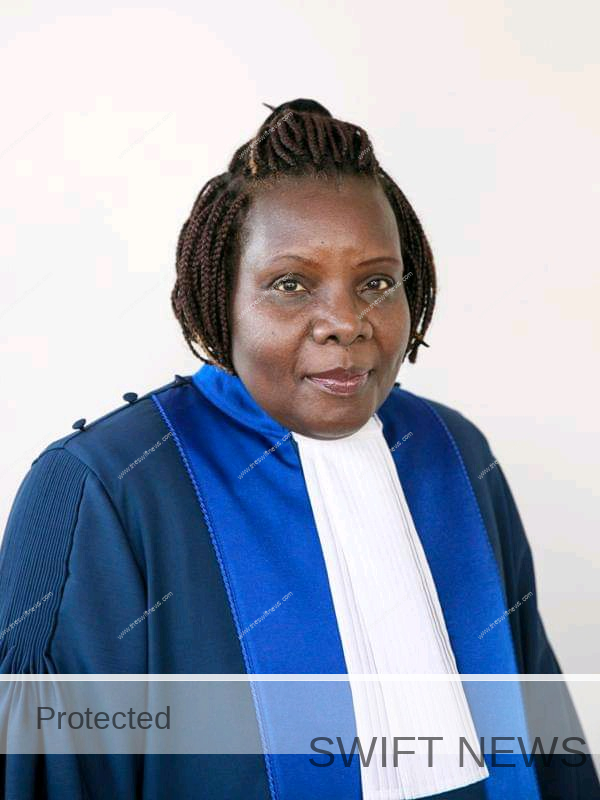
By Our Reporter
In a sharp escalation of tensions between Washington and the International Criminal Court (ICC), the United States—under President Donald Trump’s renewed administration—has announced sweeping sanctions against five ICC judges, including Uganda’s Judge Solomy Balungi Bossa. The move follows the ICC’s controversial decision to issue an arrest warrant for Israeli Prime Minister Benjamin Netanyahu over alleged war crimes in Gaza.
The U.S. government described the ICC’s action as “politically motivated and legally baseless,” accusing the court of targeting a key American ally in the Middle East. In retaliation, President Trump ordered immediate sanctions on the involved judges, which include travel bans to the United States and the freezing of any assets or financial interests they may hold within U.S. jurisdiction.
Judge Solomy Bossa Among Sanctioned Jurists
Prominent Ugandan jurist Solomy Balungi Bossa, who has served on the ICC since 2018 and is known for her human rights work and judicial integrity, is among those sanctioned. The remaining four judges—also women—have backgrounds in international law and are recognized for presiding over high-profile cases involving war crimes and crimes against humanity.
While no specific allegations have been made against the individual judges, the U.S. administration’s move appears aimed at discrediting the court’s recent ruling and dissuading further action against allied leaders, particularly Israel.
US–ICC Tensions Resurface
This is not the first time the Trump administration has clashed with the ICC. During his first term, President Trump imposed similar sanctions after the court authorized an investigation into alleged war crimes committed by U.S. forces in Afghanistan. At the time, Trump denounced the court as an “illegitimate” body that violated American sovereignty.
Although President Joe Biden lifted many of those sanctions during his tenure, adopting a more diplomatic posture toward international institutions, Trump’s return to office has reignited confrontational policies aimed at asserting U.S. dominance in global justice matters.
Despite mounting political pressure, the ICC has continued its pursuit of accountability in conflict zones, including the recent Gaza conflict. In addition to the warrant for Prime Minister Netanyahu, the court has also issued arrest orders for former Israeli Defense Minister Yoav Gallant and Hamas leader Ibrahim Al-Masri, citing alleged war crimes and crimes against humanity.
The court’s decisions have drawn global division—welcomed by human rights organizations and legal scholars, but fiercely condemned by nations implicated in the proceedings.
ICC spokespersons have maintained that the court operates independently and remains committed to enforcing international humanitarian law without regard for geopolitical interests. Legal experts say the current standoff could have lasting implications for the credibility of international justice mechanisms and the global balance of power.
Uganda Yet To Respond
As of press time, the Ugandan government had not issued an official response to the sanctions against Judge Bossa, a respected figure in both national and international judicial circles. Her inclusion on the sanctions list has sparked concern among Ugandan legal professionals and human rights defenders, who view the action as an affront to judicial independence.
The renewed U.S. sanctions underscore a deepening rift between national sovereignty and international accountability. With the 2026 U.S. elections looming and international conflicts continuing to unfold, the role and reach of the ICC may once again become a battleground between legal ideals and realpolitik.

